Diagnostic Accuracy and Efficiency
The difference of setting the patient on the right clinical path through timely and accurate diagnosis

- Overview
- Related Products
Poor diagnostic results can lead to improper diagnoses, delays in treatment or other consequences
-
 12 million
12 millionAdults are affected by outpatient diagnostic errors in the United States annually 6
-
 Up to 75%
Up to 75%Of lab diagnostic errors occur in the preanalytical phase 7,8
-
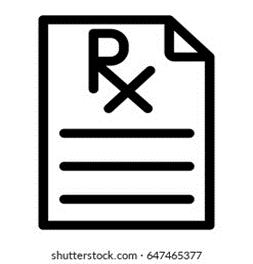 30–50%
30–50%Of all antibiotics prescribed aren't needed or aren't optimally effective as prescribed 9,11
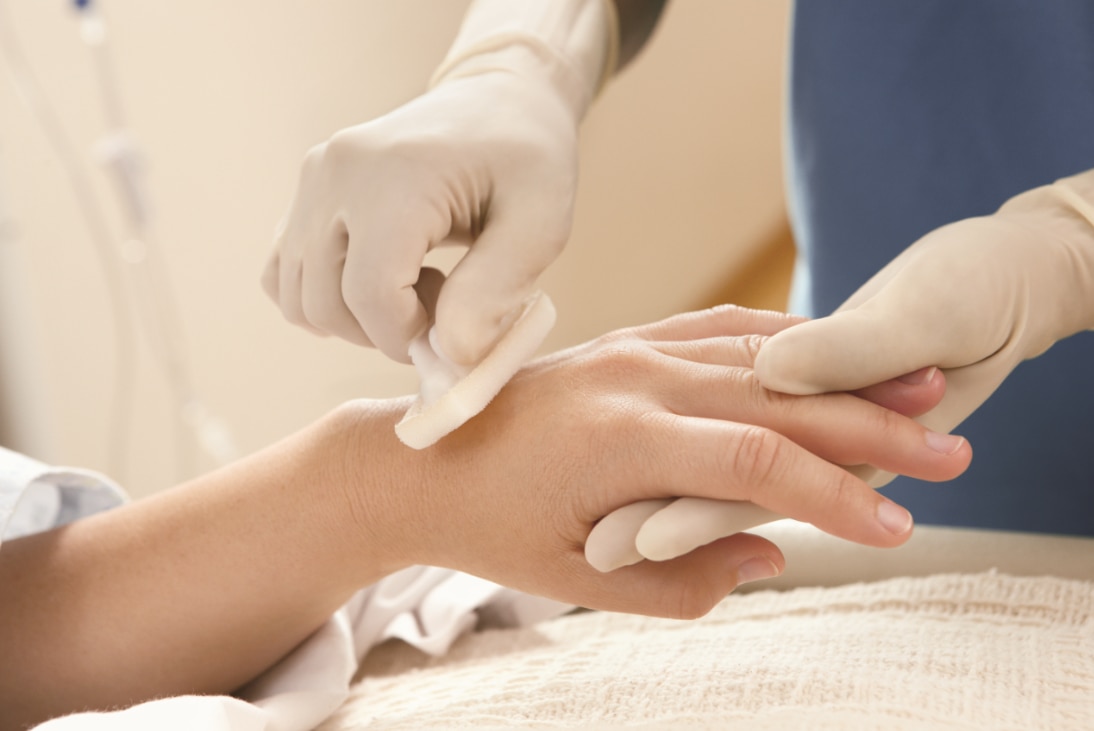
With access to high-quality results in less time, clinicians can feel confident that accurate information is informing a more optimal diagnosis and treatment plan. Discover how the right results can lead to a shorter length of stay and a better experience for everyone.
Explore the BD® Diagnostic Accuracy and Efficiency Program
The BD® Diagnostic Accuracy and Efficiency Program can help you optimize the process from specimen collection through the delivery of lab results and recommends BD solutions to help you minimize errors and complications, like specimen contamination and retesting.
Through our BD® Diagnostic Accuracy and Efficiency Program, we use a baseline assessment to provide recommendations on BD solutions that can address identified gaps and improve performance in people, processes and technologies. Our technologies are designed to drive better outcomes from preparation through reporting results.
Toward better results
- Reducing lab turnaround time and emergency department (ED) length of stay
- Minimizing specimen contamination rate
- Improving patient and healthcare worker experience
- Maximizing diagnostic accuracy
Actionable insights from an industry leader
- Reviewing current practices and policies through clinical assessments from specimen collection through delivery of lab results
- Providing recommendations based on a baseline assessment of how BD solutions can address identified gaps and improve performance in people, processes and technologies
- Helping clinicians adhere to best practice through training and education
Discover how to help set patients on the right clinical path

Proper cleaning and decontamination of a patient's skin, such as before providing a urine sample or drawing a blood sample, helps reduce contamination rates. 44% of ER patients and inpatients were prescribed inappropriate antibiotics due to contaminated urine cultures.1
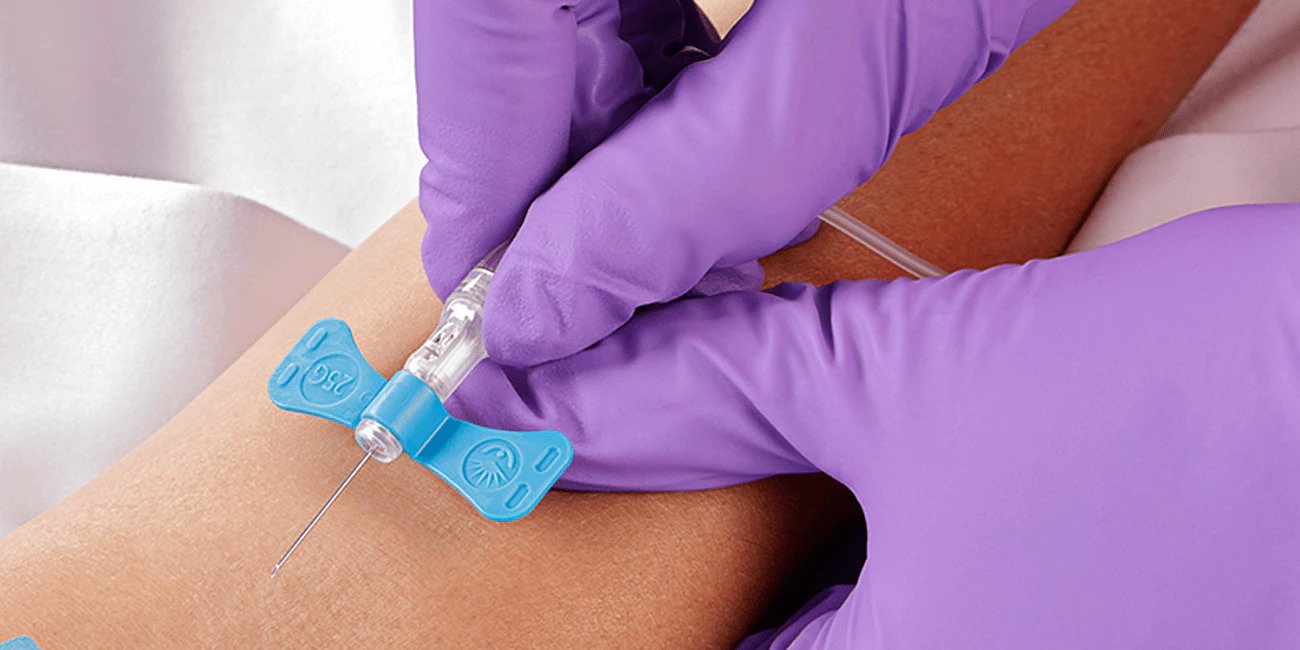
The specimen collection method can impact specimen integrity.
56% of blood collections are from patients with diagnoses associated with difficult venous access2 (e.g., cancer, chronic cardiovascular disease, chronic kidney disease, diabetes, blood disorders/anemias and obesity).
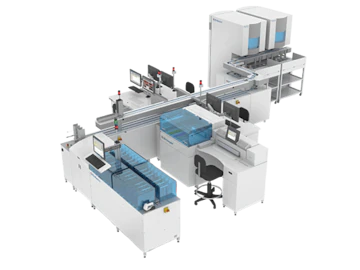
The testing method, timing and process can impact the time to reporting. A 10-minute reduction in lab result turnaround time = 6.7 minute reduction in ED length of stay.4
BD BACTEC™ FX blood culture system
BD FACSLyric™ clinical flow cytometry system
BD Kiestra™ lab automation solutions
BD Phoenix™ automated identification and susceptibility testing system

Time to reporting of results can have an impact on clinical decisions and therefore patient treatment. Many physicians surveyed believed that laboratory turnaround time caused delayed ED treatment more than 50% of the time and increased ED length of stay more than 50% of the time.5
-
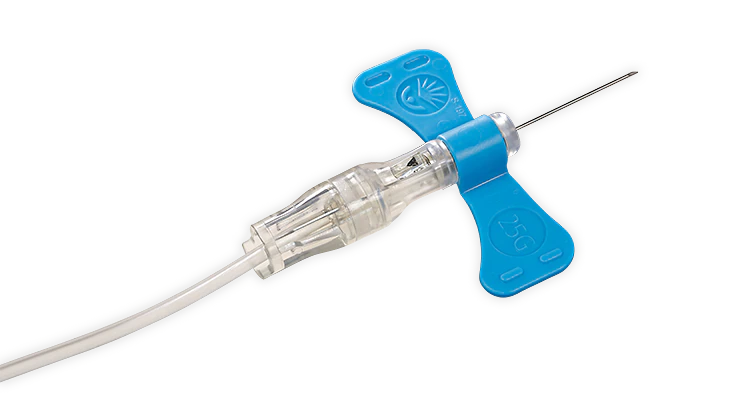
With propriety BD PentaPoint™ and BD RightGauge™ needle technology, the BD Vacutainer® UltraTouch™ push button blood collection set aims to improve the patient experience by enhancing comfort, enabling clinicians to better access difficult veins, and reducing overall procedure times.
-
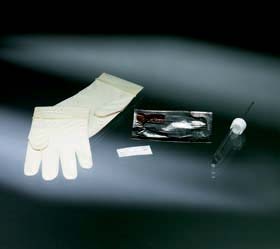
BD urine specimen kits offer a closed system that reduces the risk of specimen contamination and associated false readings.
-
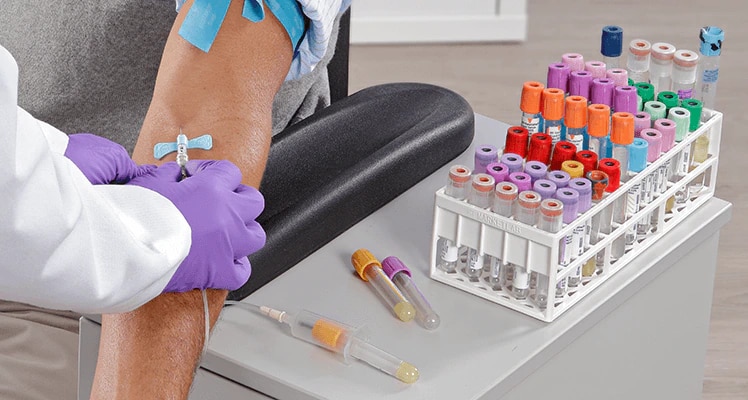
BD is the inventor of BD Vacutainer® blood collection tubes as well as the worldwide leader in blood tubes. We support our products with extensive clinical expertise and educational materials to help you achieve the best possible results.
-
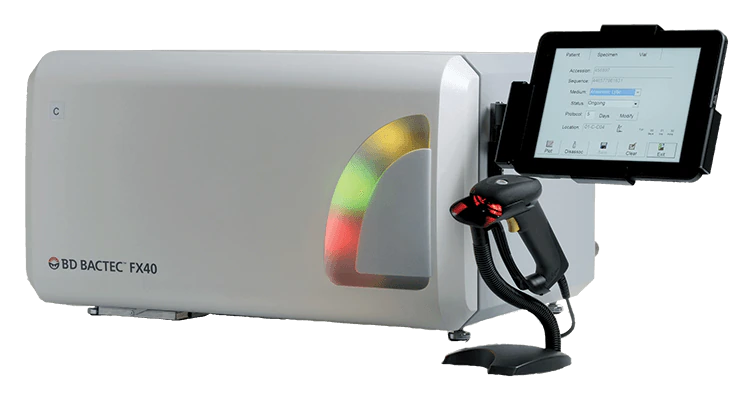
The BD BACTEC™ FX blood culture system builds on the proven history of previous BD BACTEC™ instrumentation, with advanced fluorescence detection technology, exceptional media performance and instrument reliability—adding vial-activated workflow, advanced ergonomics, blood culture observation and customer-focused data management.
-
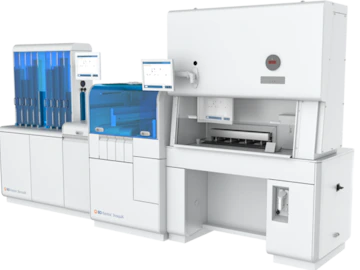
The specimen processor automates the processing of both liquid and non-liquid sample types.
-
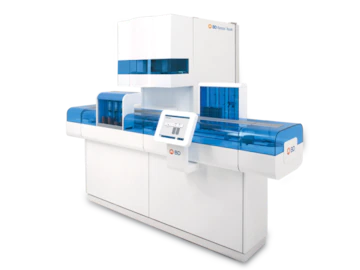
Intelligent incubation and imaging system. Standardize incubation, imaging and results interpretation.
-

Scalable solution to help you enhance laboratory operations and advance laboratory operations.
-

An application developed with Artificial Intelligence (AI) that enables high resolution and standardized plate imaging to deliver laboratory efficiencies and advanced image analysis.
-
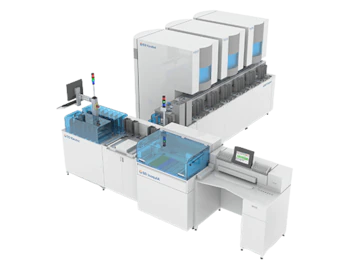
A modular, automated solution designed for microbiology laboratories of all sizes.
-
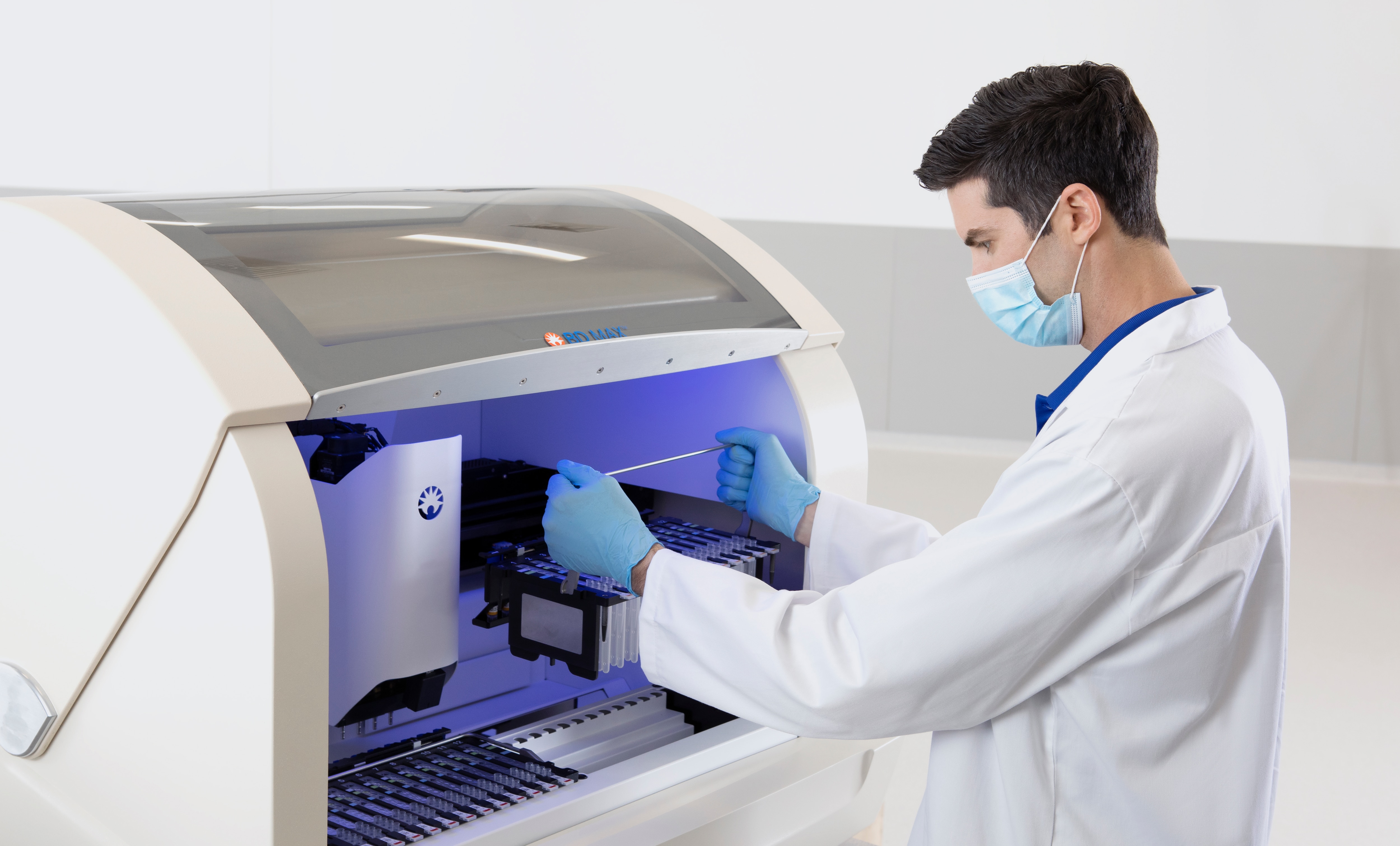
The BD MAX™ system offers you an efficient path to improved clinical outcomes by combining and automating extraction and thermocycling into a single platform capable of running both FDA-cleared and open system assays. Flexibility and standardization allow you to address the breadth of your testing needs.
-
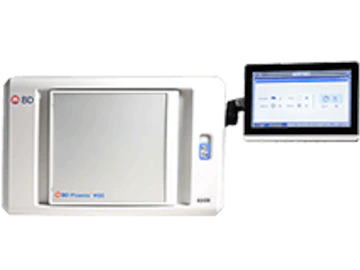
The BD Phoenix™ M50 instrument provides clinicians with accurate and timely identification and susceptibility results to help guide their therapy and patient management decisions.
-
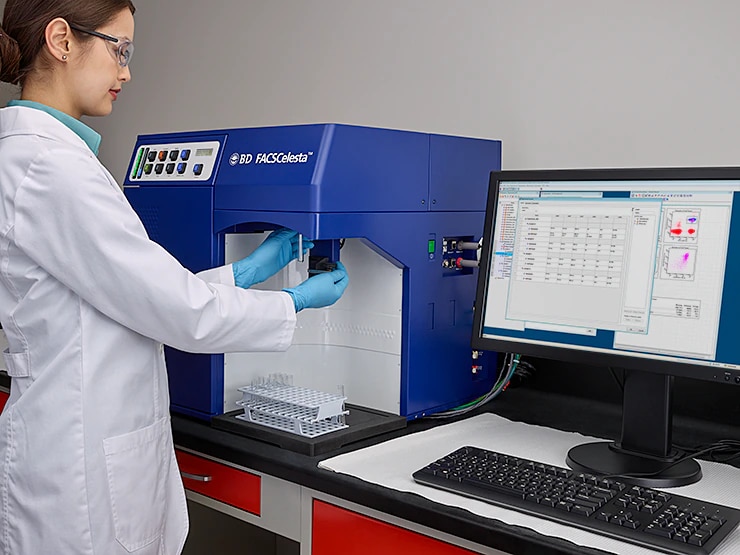
Enable powerful, innovative and efficient flow cytometry for your clinical or research lab
-
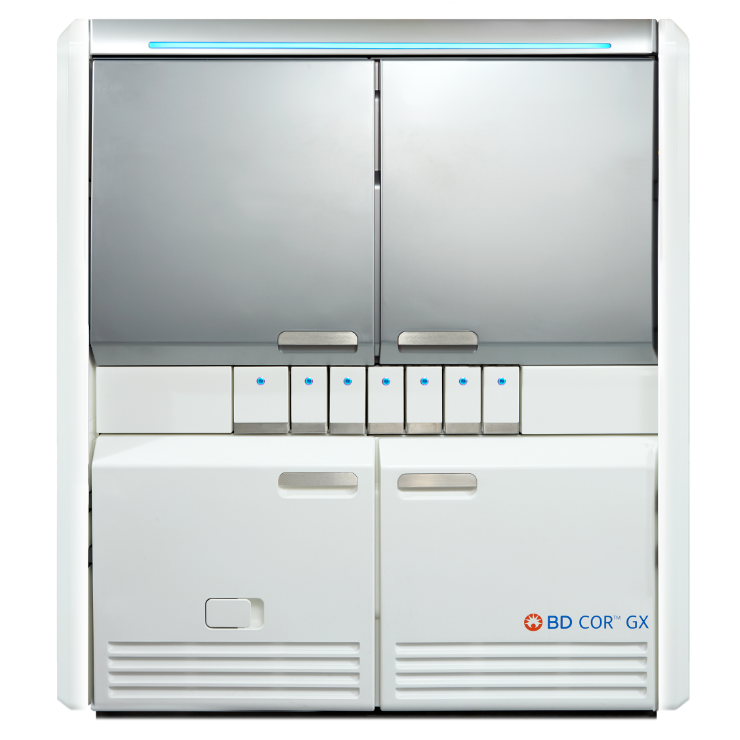
Delivering efficiency, flexibility and performance to meet your laboratories' evolving molecular diagnostic needs.
-
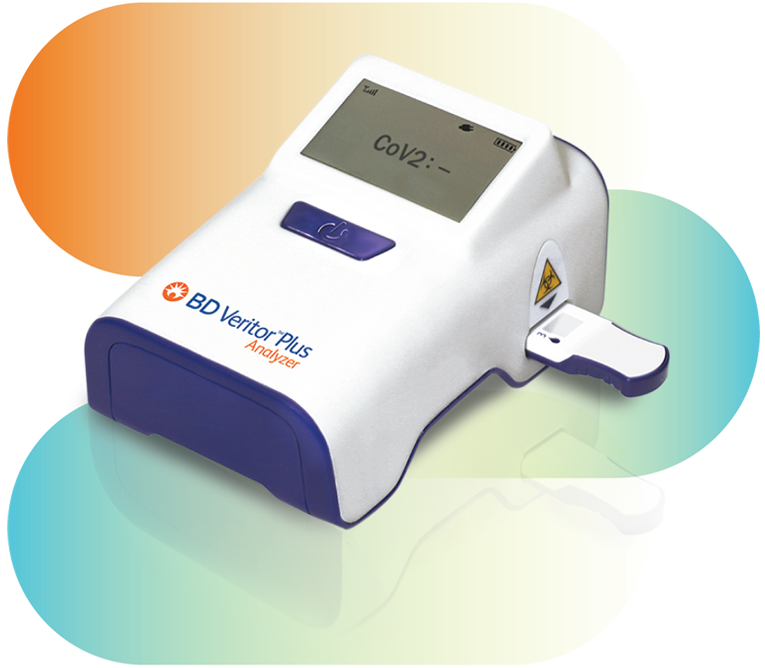
Two testing solutions offering reliable results with the same hospital-grade technology that doctors trust.
-
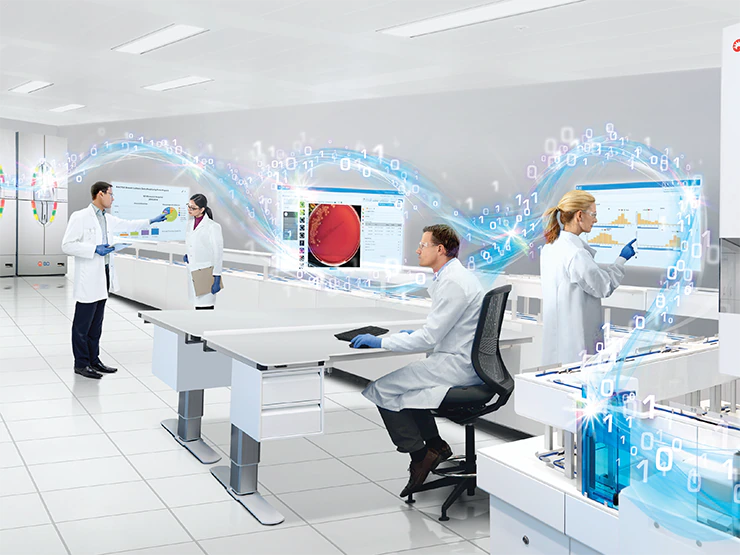
BD Synapsys™ solution enables laboratories to address challenges and improve laboratory outcomes. It enables labs to maximize performance using enhanced microbiology diagnostic informatics through a single, advanced platform with an intuitive, personalized user interface. BD Synapsys solution offers integrated workflow and on-demand insights to empower laboratory staff to impact turnaround time, expedite decision making, improve productivity and simplify compliance.
-

BD HealthSight™ Clinical Advisor and BD HealthSight™ Infection Advisor with MedMined™ Insights are enterprise-wide, e-surveillance and clinical notification solutions allowing users to select the information most actionable for their healthcare site.
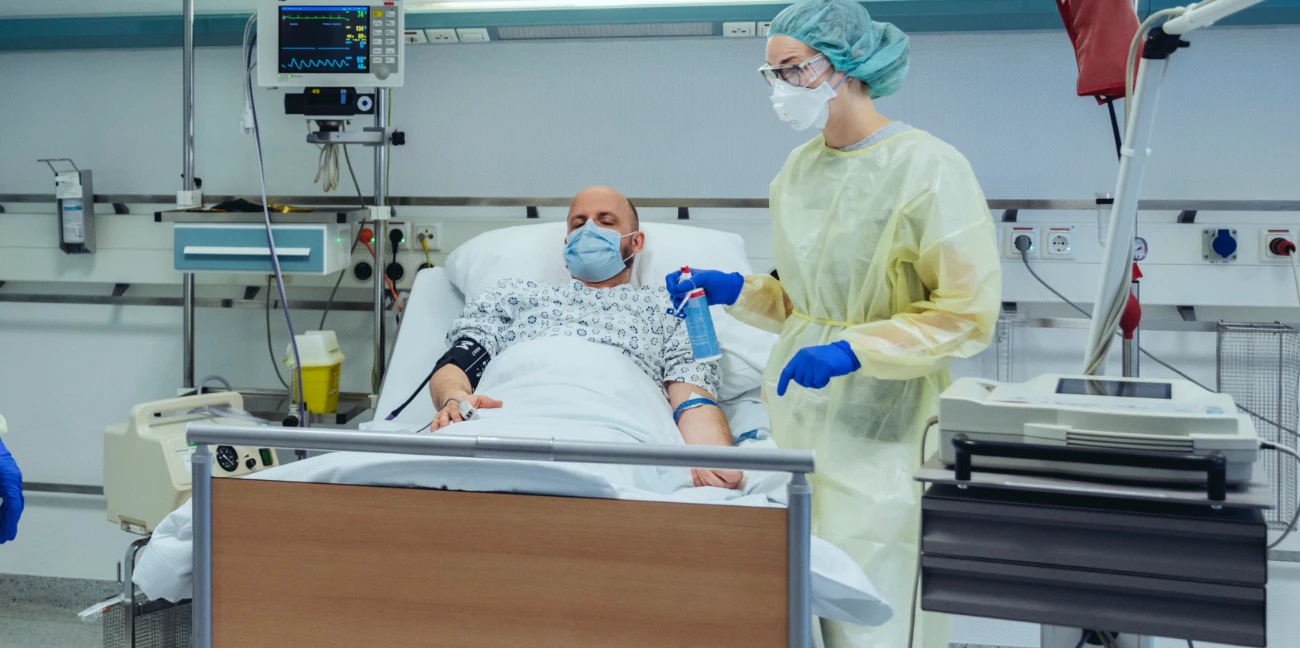
Sepsis Management

Clinical Flow Cytometry
Klausing BT, Tillman SD, Wright PW, Talbot TR. The influence of contaminated urine cultures in inpatient and emergency department settings. Am J Infect Control. 2016;44(10):1166-1167. doi: 10.1016/j.ajic.2016.03.055
Data on File: REF-1882 BD Venipuncture Burden Insurance Data, U.S. 2012.
Bryan C. Urinary tract infections. In: Hunt R. Infectious Disease. Microbiology and Immunology On-line. University of South Carolina School of Medicine; 2017.
Urinary Tract Infections . Accessed April 17, 2017.
Mitra D, Erdal E, Khangulov V, Tuttle R. Association between laboratory test turnaround time and emergency department length of stay: a retrospective US electronic health database analysis. Poster session presented at: American Association for Clinical Chemistry 2015 Annual Meeting and Clinical Lab Expo; July 26-30, 2015; Atlanta, GA.
- Steindel SJ, Howanitz PJ. Physician satisfaction and emergency department laboratory test turnaround time. Arch Pathol Lab Med. 2001;125(7):863-871.
- Singh H, Meyer AN, Thomas EJ. The frequency of diagnostic errors in outpatient care: estimations from three large observational studies involving US adult populations. BMJ Qual Saf. 2014;23(9):727-731. doi: 10.1136/bmjqs-2013-002627
- Lippi G, Chance JJ, Church S, et al. Preanalytical quality improvement: from dream to reality. Clin Chem Lab Med. 2011;49(7):1113-1126. doi:10.1515/CCLM.2011.600
- Bonini P, Plebani M, Ceriotti F, Rubboli F. Errors in laboratory medicine. Clin Chem. 2002;48(5):691-698.
- Centers for Disease Control and Prevention (CDC). Antibiotic resistance threats in the United States, 2013. https://www.cdc.gov/drugresistance/threat-report-2013. Published September 16, 2013. Accessed September 18, 2018.
- Centers for Disease Control and Prevention (CDC). 1 in 3 antibiotic prescriptions unnecessary
CDC Newsroom . Last reviewed January 1, 2016. Accessed 18, 2018.
- Fleming-Dutra KE, Hersh AL, Shapiro DJ, et al. Prevalence of inappropriate antibiotic prescriptions among US ambulatory care visits, 2010-2011. JAMA. 2016;315(17):1864-1873.
